Heidegger, Strauss, and the Premises of Philosophy
ON ORIGINAL FORGETTING
Richard L. Velkley
The University of Chicago Press
CHICAGO & LONDON
RICHARD L. VELKLEY is the Celia Scott Weatherhead Professor of Philosophy at Tulane University and author of Freedom and the End of Reason: On the Moral Foundation of Kants Critical Philosophy and Being after Rousseau: Philosophy and Culture in Question, both published by the University of Chicago Press.
The University of Chicago Press, Chicago 60637
The University of Chicago Press, Ltd., London
2011 by The University of Chicago
All rights reserved. Published 2011.
Printed in the United States of America
20 19 18 17 16 15 14 13 12 11 1 2 3 4 5
ISBN-13: 978-0-226-85254-6 (cloth)
ISBN-10: 0-226-85254-7 (cloth)
ISBN-13: 978-0-226-85255-3 (e-book)
Library of Congress Cataloging-in-Publication Data
Velkley, Richard L.
Heidegger, Strauss, and the premises of philosophy on original forgetting / Richard Velkley.
p. cm.
Includes bibliographical references and index.
ISBN-13: 978-0-226-85254-6 (cloth: alk. paper)
ISBN-10: 0-226-85254-7 (cloth : alk. paper) 1. Strauss, Leo. 2. Heidegger, Martin, 18891976. 3. Philosophy, Modern20th century. 4. Political sciencePhilosophyHistory20th century. 5. OntologyHistory20th century. I. Title.
B945.S84V45 2011
193dc22
2011000175
 This paper meets the requirements of ANSI/NISO Z39.48-1992 (Permanence of Paper).
This paper meets the requirements of ANSI/NISO Z39.48-1992 (Permanence of Paper).
C ONTENTS
A CKNOWLEDGMENTS
I wish to express my gratitude to the John M. Olin Center for Inquiry into the Theory and Practice of Democracy, the LeFrak Forum, and the Symposium on Science, Reason, and Modern Democracy, and to Nathan Tarcov and Richard Zinman, conference organizers, for the invitation to participate in the conferences at the University of Chicago and Michigan State University on Leo Strausss Natural Right and History in AprilMay 2001, which were the occasion for a lecture that became , and to the late Dr. Kurt Pritzl, O. P., dean of the School of Philosophy at the Catholic University of America, for his invitation to give a paper in the Fall 2007 Lecture Series on Pre-Socratic Philosophy, from which my first chapter is derived. My thanks go to various friends and colleagues with whom I have discussed parts of the book: Avner Ash, Fred Baumann, Diego Benardete, Robert Berman, Ronna Burger, Michael Davis, Patrick Goodin, Victor Gourevitch, Richard Hassing, Mark Lilla, Nalin Ranasinghe, Susan Shell, Martin Sitte, Nathan Tarcov, Holger Zaborowski, and Catherine Zuckert. To David Brent and Laura Avey at the University of Chicago Press and Brian Walters I am greatly indebted for help and support with the manuscript, technical and otherwise. It has been a great pleasure to work with Susan Tarcov in the final stage of editing.
Parts of the book have been previously published: in Review of Politics 70, no. 2 (spring 2008): 24559.
Parabasis
To work out the question of Being adequately, we must make an entitythe inquirertransparent in his own Being. The very asking of this question is an entitys mode of Being; and as such it gets its essential character from what is asked aboutnamely, Being.
MARTIN HEIDEGGER, Being and Time
Now questioning has priority over answering. God does not ask, but he answers. Questioning is more characteristic of the human intellect than answering. There is no answer without questioning, but there is indeed questioning without answer.
LEO STRAUSS, Religise Lage der Gegenwart
I
The crisis of our time may have the accidental advantage of enabling us to understand in an untraditional or fresh manner what was hitherto understood only in a traditional or derivative manner. The close linking of these thinkers will doubtless provoke resistance in many readers. Heideggers followers are unlikely to think of Strauss as a comparably penetrating and fundamental thinker. Should they think of Strauss as having any connection with Heidegger, it is as the critic of the latters radical historicism and therefore as a hostile voice, not as a sympathetic reader open to the challenge of Heideggers questioning of the metaphysical tradition. Strausss followers commonly view Heidegger as an early stimulus to Strauss, which he left behind quickly for a more salutary philosophic endeavor, as Heideggers philosophy expresses the ultimate decline of the tradition into extreme relativism and nihilism, whose political manifestation was Heideggers participation in the National Socialist movement. Strausss mature thought, accordingly, took notice of Heidegger only for critical and cautionary ends, while his own concern with recovery of the beginnings of the tradition bears only a superficial resemblance to Heideggers effort of Destruktion of the tradition. Contrary to such opinions, it will be maintained here that Strausss reflection on the basic philosophic questions has a radicality comparable to Heideggers, and that he was to the end of his life engaged with Heidegger as the one contemporary thinker with whom his thought was in essential dialogue.
In one of his last publications Strauss considers the place of political philosophy in three great figures of recent philosophy who helped to shape the direction of his thinking: Nietzsche, Husserl, and Heidegger. Even so, Strauss may well have meant with his seemingly casual aside that his workand Heideggers as wellwould not be adequately understood until his readers had learned to study how his thought relates to Heideggers.
This claim may strike many as improbable. Strausss work does not seem to be much concerned with metaphysical questions, and Heideggers thought lacks close attention to political matters, although notoriously at certain junctures it is politically engaged. Part of the difficulty is that Strausss work is too often viewed through that of his students (first and second generation) who were on the whole disinclined to undertake study of metaphysical texts and thinkers, and perhaps especially not those of late modernity. Strausss own writing encourages a certain reserve (albeit solemn and awestruck) before first philosophy, with his refrain that philosophy begins with reflecting on the surface of things, the human experience of the political and moral phenomena.
Classical political philosophy, as founded by Socrates, did not have to undertake the dismantling of a prior tradition and could investigate the prephilosophic understanding of political phenomena without the aid of historical studies. Yet his numerous autobiographical comments on his philosophical encounters with Husserl and Heideggersuggesting the parallel of Socratess story of his early enthusiasm for Anaxagoraspress one to ask the question: How does Strausss account of the ascent from the political relate to these roots of his thought?
I start with an indispensable but insufficient formulation. Heidegger and Strauss are linked by the perception each had in his formative years that the Western rationalist tradition had collapsed, an event for which the political catastrophe of their generation, the First World War, gave compelling evidence. More fundamentally, the brilliant arguments of Kierkegaard and Nietzsche had exposed the failure of the civilization of the European Enlightenment. All the same, this common ground of Heidegger and Strauss is partly obscured by the appearance, promoted by Strauss himself, that the true issue between the two is the problem of relativism, which Strauss would address by the assertion of absolute norms. As I shall argue, the deeper issue for Strauss is whether Heidegger has remained faithful to his own reopening of the aporia of Being, i.e., the implications of the crisis of philosophy, and whether Socratic skepticism provides (as Strauss argues) the more rigorous and consistent response to the crisis. Although Strauss affirms the superiority of the Socratic way, the novel terms of his rethinking that way are still decisively indebted to Heidegger.
Next page
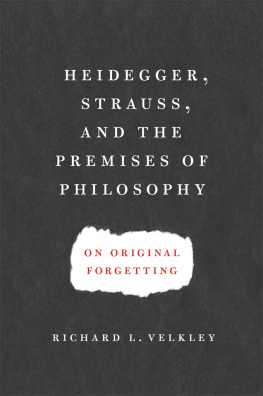

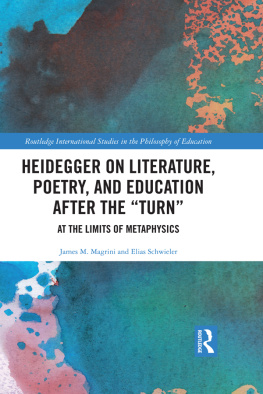
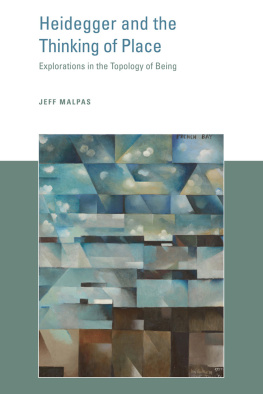
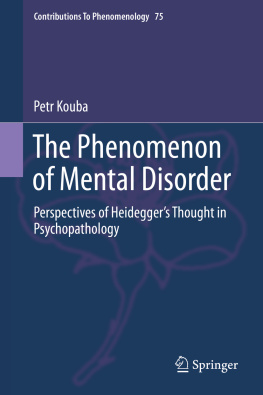
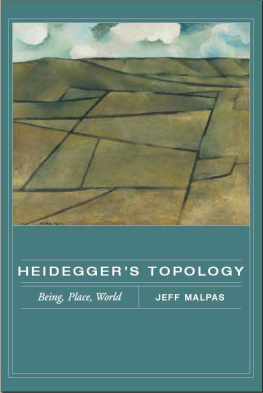
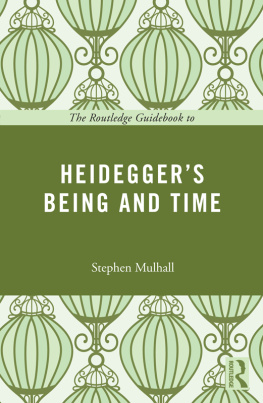
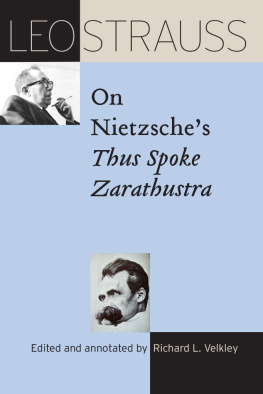
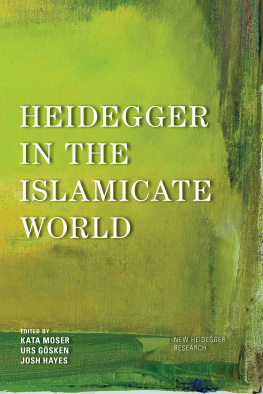


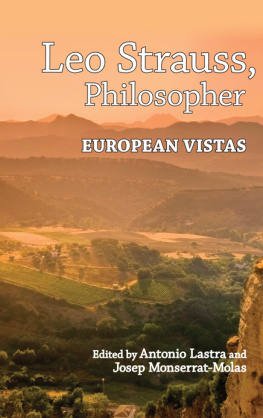
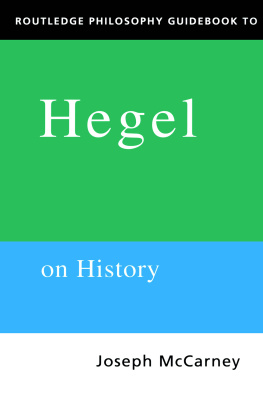

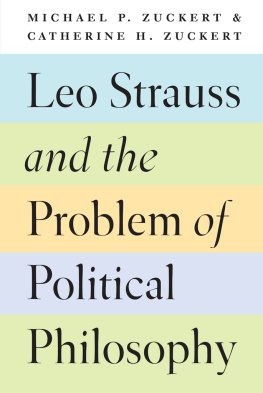
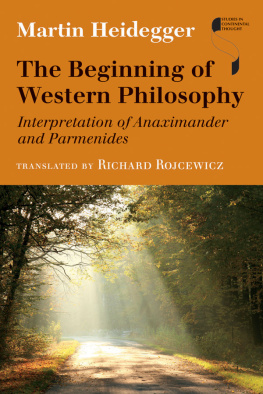
 This paper meets the requirements of ANSI/NISO Z39.48-1992 (Permanence of Paper).
This paper meets the requirements of ANSI/NISO Z39.48-1992 (Permanence of Paper).